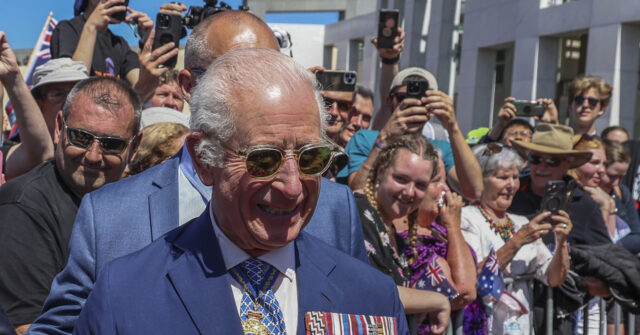On October 21, 2024, a contentious scene unfolded in the Australian Parliament as Indigenous activist Senator Lidia Thorpe interrupted King Charles III’s address, making headlines worldwide. Thorpe, a prominent figure known for her activism and controversial tactics, heckled the King by shouting accusations related to colonialism and genocide, remarks that reflected her deep frustration regarding Indigenous rights and history in Australia. Dressed in a traditional Aboriginal cloak, she faced King Charles, asserting that he and the British monarchy were responsible for historical atrocities against Indigenous Australians. Her outburst—“You committed genocide against our people” and “This is not your land, you are not my king”—resonated with ongoing debates surrounding Indigenous sovereignty, land rights, and the legacy of colonialism.
Thorpe’s interruption during the ceremonial reception hosted by Australian Prime Minister Anthony Albanese highlighted significant tensions surrounding Australia’s colonial past and Indigenous rights. As she voiced her demands for acknowledgment of past grievances, including calls for land restitution and a formal treaty, her actions sparked discussions about the place of the monarchy in modern Australian society. The stark contrast between her protest and the opulence of the royal visit underscored the existing divides in Australian society, particularly concerning the treatment of Indigenous peoples and their ongoing struggle for recognition and reparative justice.
While Thorpe’s activism aims to draw attention to serious social issues, her personal narrative complicates her public persona. Critically, her father has contested her portrayal of a life marked solely by discrimination and suffering, asserting that she grew up relatively privileged. This perspective raises questions about the motivations underpinning her activism and the authenticity of her claims. It suggests that, in a landscape where identity politics is often leveraged for public engagement, individual backgrounds can shape narratives in profound ways.
Thorpe’s confrontational style has not been without precedent; she has previously engaged in high-profile protests, including a disruptive appearance during a day of mourning for the late Queen Elizabeth II. Her activism, while aiming to spotlight crucial issues, occasionally suffers from strategic missteps, as evidenced by a botched protest that mistakenly targeted a jewelry store instead of the intended British Consulate. Such inconsistencies pose challenges to the effectiveness of her message and raise questions about the planning and execution of activist endeavors.
In addition to her critiques of the monarchy, Thorpe has also found herself embroiled in controversies surrounding gender and women’s rights advocacy, particularly regarding transgender issues. Her approach has led to confrontations with police at various events, reflecting broader societal debates about gender identity and inclusivity. This multifaceted activism positions Thorpe as a polarizing figure, admired by some for her unapologetic stance yet criticized by others for her methods and positions on intersecting issues.
King Charles’s visit to Australia, which included a nine-day tour following his cancer diagnosis and treatment, was initially fraught with complications. The significance of his presence in a nation grappling with its colonial legacy and Indigenous rights amplified the impact of Thorpe’s protest. As Australia continues to navigate its identity and the complexities of its history, Thorpe’s actions serve as a reminder of the ongoing struggles faced by Indigenous communities, revealing the persistent need for dialogue, recognition, and reconciliation in the face of a challenging colonial past.

